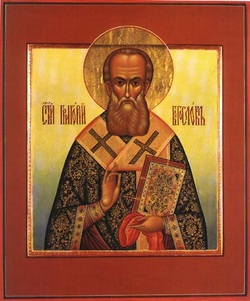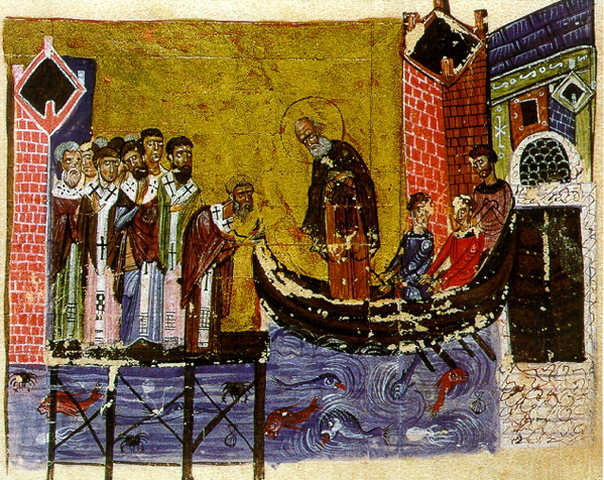
Gregory after a while returned home. He was first made Bishop of Sosima, and afterwards administered the Church at Nazianzus. Then he was called to rule the Church of Constantinople. That city, which he found reeking with heresy, he purged, and brought again to the Catholic faith. But this, which deserved for him the warmest love of all men, raised up many enemies. Among the bishops themselves there was a great party against him, and to still their contentions, he, of his own free will, gave up his See, saying with the Prophet Jonah: Take me up, and cast me forth into the sea: so shall the sea be calm unto you; for I know that for my sake this great tempest is upon you. So he went his way back again to Nazianzus, and when he had seen that Eulalius was set over that Church, he gave himself up altogether to think and write concerning the things of God.
He wrote much, both in prose and verse, with wonderful godliness and eloquence. According to the judgement of learned and holy men, there is nothing in his writings which anywhere strays from the line of true godliness and Catholic truth, and not a single word which any one can justly call in doubt. He was one of the latest champions of the doctrine that the Son is of one substance with the Father. No one hath ever won greater praise for goodness of life, neither was any man more earnest in prayer. During the reign of the Emperor Theodosius he dwelt in the country after the manner of a monk, and unceasingly taken up with writing and reading, until, in a good old age, he laid down his earthly, to enter on an heavenly life.





